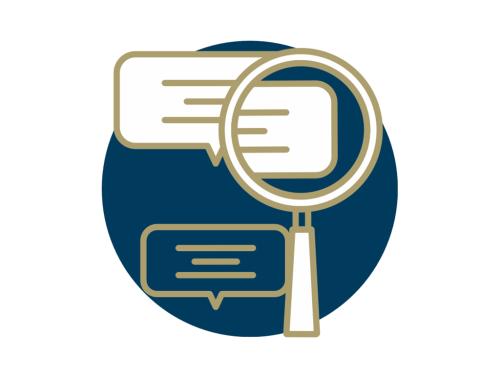The General Services Administration updated the classic version of Regulations.gov, the primary website used for accepting public comments.


The GW Regulatory Studies Center scholars regularly conduct applied research to understand regulatory policy and practice from a public interest perspective. Our content often takes the form of public interest comments, formal testimony, working papers, policy insights, and short commentaries analyzing the most pressing issues in regulatory policy. View the rest of our material by the different types of publications listed on this page or our research areas.

Long-form publications intended for academic audiences that take a deep dive into a particular aspect of regulatory policy.

Scholarly analysis of the potential effects of particular rulemakings from federal agencies, and advice to Congress on how to improve the rulemaking process.

Short-form publications intended for all audiences which provide easy to access analysis of regulatory policy.

Formal publications, often completed with other leading organizations and individuals, providing a thorough understanding of regulations and the rulemaking process.

The weekly Regulation Digest contains everything you need to know about regulatory policy today, and our monthly Center Update gives you all of the latest from our team.
For accessible charts and supporting data that you can use in your own publications or presentations, visit the Reg Stats page.
The General Services Administration updated the classic version of Regulations.gov, the primary website used for accepting public comments.
Regulatory Benefit-Cost Analysis—Advice for a New Presidential Term
SBCA organized a panel dispensing advice to the incoming Biden administration on improving and expanding the use of benefit-cost analysis.
Telemedicine & Initiating Buprenorphine Treatment
Federal regulators dramatically reduced the barriers to using telemedicine to treat opioid use disorder in response to the COVID-19 public health emergency. Public health experts have long argued that health care practitioners can provide high-quality treatment for opioid use disorder via telemedicine. Until now, federal regulation has limited the ability of practitioners to prescribe buprenorphine, one of the medications considered the gold standard for treatment of opioid use disorder, using telemedicine.
Regulatory Sentiment and Uncertainty under the Trump Administration
The impact of regulatory policy depends on how it is designed and implemented, but public perceptions and subjective attitudes about regulation can also play important roles in how it affects the economy. Using newspaper text, I track sentiment and uncertainty about regulation until January 31, 2021 and discuss how they changed during the Trump and previous administrations in this commentary.
Extending Executive Order 12866 to Independent Regulatory Agencies
A DOJ opinion means that the president can require the independent agencies to perform benefit-cost analyses of all significant regulations.
A Last-Minute Attempt to Partially X the X Waiver
Although HHS appears to have the legal authority to provide exemptions from buprenorphine requirements, taking time to ensure flexibilities are legally defensible will promote the uptake of the policies in the long term.
The Regulators' New Marching Orders
Biden's Inauguration Day actions foreshadow a move away from the bipartisan emphasis on evidence-based policy and signal a less humble approach to regulating.
Two Rules President Biden Needs To Make His Ambitious Environmental Agenda Successful
Two Trump-era EPA rules President Biden is targeting for removal could help, not hinder, his ambitious regulatory goals.
The Regulatory Savvy of Biden’s Early Executive Actions
Just hours after his inauguration, President Joe Biden set in motion a series of executive actions that will shape his regulatory agenda. Taken together, they demonstrate that the incoming administration will be responsive to complaints about the regulatory system it is inheriting while still relying on time-tested and valuable analytical techniques and processes.
